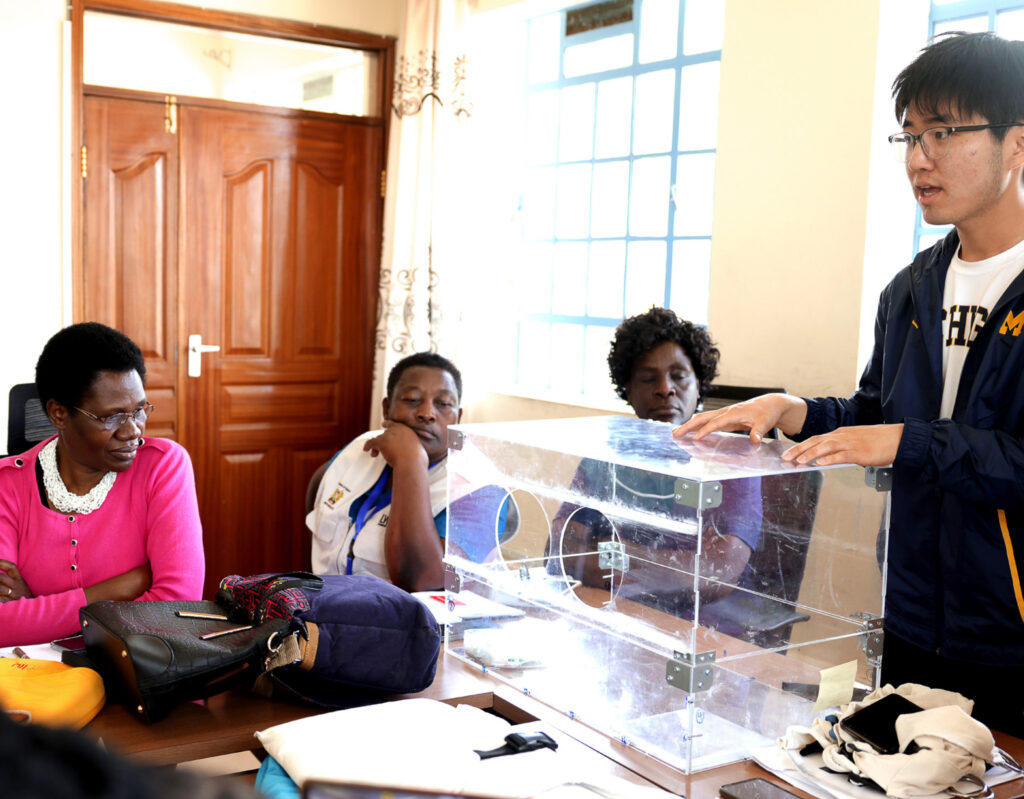Written by Jooyoung Chung, ELP student
This summer, I had the incredible opportunity to intern at Warmilu, a local healthcare technology startup in Ann Arbor. Their mission is to provide non-electric infant incubator blankets to warm infants in resource-scarce settings. As a Business Development, Operations, and Marketing Intern, I worked closely with Grace Hsia Haberl, the Co-Founder & CEO, immersing myself in the dynamic world of healthcare innovation. During my internship, I also had the opportunity to tag along with Grace to Kenya and meet with senior leadership at various government and private hospitals to further expand the clinical usage of the infant warming incubator blankets there. From riding on a defective commercial plane to getting tear gassed from nearby government protests, my stay in Kenya was filled with eye-opening experiences. Here are the three main things I learned during my trip to Kenya:

1) Medicine alone cannot solve healthcare problems
During my stay in Kenya, I had the fortunate opportunity to visit seven hospitals and engage with over 25 physicians, midwives, and county health officials. These interactions gave me valuable insights into the healthcare landscape of Kenya, particularly in the context of maternal and infant health. Among the various hospital visits, one particular hospital I visited was Migori County Referral Hospital (MCRH). This hospital acts as a vital healthcare hub for Migori, a rural county with a population of over one million Kenyans, receiving referrals from numerous smaller medical facilities across the region.
My encounter with a county health official during this visit left me astonished when I learned that the mortality rate of infants from hypothermia stood at a staggering 3.8%. After further discussion, I learned that a significant factor contributing to these tragic deaths was the absence of adequate warmth within the ambulances responsible for carrying infants during inter-hospital transport. Further, due to the considerable distances many of these infants had to travel to reach MCRH from remote facilities, a lot of infants would be subjected to prolonged cold temperatures and ultimately die from hypothermia en route before they could receive life-saving treatment from doctors.
From the discussions with MCRH medical experts and others, I have learned that medicine alone cannot solve all problems in healthcare. Instead, some problems require innovative solutions. In the case of Migori, Grace and I believed equipping these ambulances with Warmilu’s non-electric infant-warming incubator blankets could significantly reduce the incidence of infant hypothermia. As a result, we partnered with MCRH to supply over 73 incubator blankets to nearby medical facilities and are currently working to roll out a training program to train staff on how to use the incubator blankets properly. By expanding the use of Warmilu’s innovative incubator blankets, we hope to fill in this healthcare gap that medicine could not solve and improve infant health outcomes in Kenya.

2) Physicians have the potential to excel as entrepreneurs
During my hospital visits, I was responsible for gathering feedback from medical experts on prototypes of the bassinet and kangaroo care sling developed by students from M-HEAL The Initiative – a group at the University of Michigan dedicated to reducing infant mortality in underdeveloped healthcare settings by creating affordable and high-quality warming solutions. Warmilu has recently partnered with The Initiative to incorporate our non-electric heating pack into their bassinet prototype, enhancing their ability to serve patients in low-resource communities. By working together, we aim to create an ecosystem of products centered around Warmilu’s non-electric heating pack, better addressing the needs of hospitals in these communities.
While showcasing these innovations to physicians, midwives, and county health officials, I could sense the room was filled with excitement. The bassinet prototype garnered particular attention when I mentioned that all its components could be packed flat in a carry-on and assembled in under 2 hours at a hotel in Kenya where I was staying. The IKEA-like feature captured their interest, as it could substantially reduce procurement costs by bypassing many customs and taxes. Given that many of the hospitals we presented to faced challenges with unstable electricity and frequent power outages, the bassinet’s ability to operate entirely without electricity, using Warmilu’s non-electric warming pack as its heating source, was also extremely appealing to them.
When given the opportunity to provide feedback on these prototypes for further product development, I was genuinely struck by the eagerness displayed by medical professionals to share potential improvements. What impressed me even more was the level of detail and specificity in their feedback. For instance, instead of the bassinet’s current design with a top-opening feature, they proposed that the bassinet door should open from the front in future iterations. They explained that such a feature would prevent any interference with the typical placement of phototherapy equipment on the incubator’s upper surface. Through these conversations, it dawned on me that physicians and healthcare workers have the potential to excel as entrepreneurs. Their extensive practical experience in the medical field has exposed them to a diverse range of medical products – those that prove effective and those that fall short. This exposure uniquely positions them to identify gaps in existing medical devices and envision new solutions to bridge these gaps. This inherent ability holds great promise for pioneering disruptive technologies in the healthcare landscape that can significantly improve health and eliminate healthcare disparities.

3) Aspiring physicians should embrace entrepreneurship
Observing the crucial role that medical insights play in developing innovative solutions to address healthcare gaps in Kenya, I realized that there is a need for more physician entrepreneurs. This is especially true given the current state of the U.S. healthcare system, which is undeniably broken and dysfunctional. From the high costs of prescription drugs to the substantial population of uninsured Americans, a wide range of problems plague the U.S. healthcare system. This is why it is extremely important for future healthcare workers, especially aspiring physicians, to develop a strong entrepreneurial mindset. By embracing the principles of entrepreneurship, physicians can develop into adept problem-solvers and effectively collaborate with engineers and other essential stakeholders to create innovative solutions for healthcare challenges that extend beyond the scope of medicine alone. With more physician entrepreneurs, there is a greater potential to reshape the U.S. healthcare system to serve the entire population rather than just a privileged few.
Therefore, if I could humbly offer some suggestions to pre-med students and future healthcare workers, I would strongly encourage them to consider incorporating entrepreneurship courses into their course load. Speaking as a fellow pre-med student, I understand the immense demands of our time, with commitments ranging from maintaining a high GPA and excelling on the MCAT to engaging in research, volunteering at hospitals, and shadowing physicians. However, I want to assure you that dedicating time to these courses wouldn’t be a waste of time, as it will equip you with the knowledge and skills to turn your ideas into a reality. By combining your future medical expertise with an entrepreneurial outlook, you will have laid a strong foundation to effectively develop new solutions to tackle problems within the healthcare industry.

To sum it up, my stay in Kenya has provided me with a wealth of new medical insights, which have strengthened my commitment to becoming a physician entrepreneur. By sharing my insights, I hope to encourage more pre-med students and future healthcare workers to be entrepreneurial-minded and actively contribute to the evolution of healthcare solutions. Looking forward, as I envision a future in politics after my career in medicine, I hope that the experiences and knowledge gained from my entrepreneurial endeavors can help me craft policies that promote entrepreneurship and spur new innovations in the healthcare industry.


